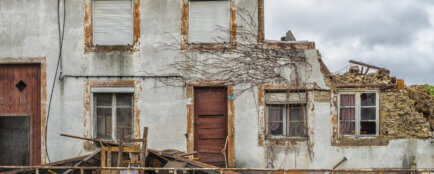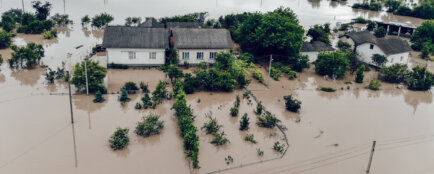Imagine coming home from work, opening the door to your apartment – and all you’re left with is your mouth hanging open. Lock picked, drawers open, TV gone, jewellery gone, your home has become a battlefield. And you think how lucky you are to have home insurance. But then you find out that you took out the policy 15 years ago, the theft limit is a ridiculous 30 grand, and the insurance company cuts your benefits short because the thief didn’t force entry. Home insurance is like a parachute – when you need it, it has to work. And when it doesn’t work, it’s too late to fix it.
The legal framework for home insurance is based on the Civil Code, which regulates the formation and content of the insurance contract. By concluding this contract, the insured undertakes to fulfil certain obligations, which are usually specified in the insurance conditions. The most important obligations of the insured include the obligation to notify the insurer of the occurrence of a damage event without undue delay, to take reasonable steps to prevent further spread of damage (for example, by closing the main water supply in the event of flooding), to allow the insurer to investigate the damage and to provide the necessary cooperation. It is also essential to inform the insurer of any relevant changes that may affect the insurance cover, such as renovation of the apartment or change of residence. Failure to comply with these obligations may lead to a reduction or even denial of insurance benefits.
A home is not like a property
One of the most common mistakes people make is confusing home insurance with property insurance. However, the two products protect completely different things. Put simply:
- Property insurance covers the building itself – that is, the walls, roof, floors, windows, radiators or chimney.
- Home insurance then covers what you “bring” into your apartment or house – furniture, electronics, clothes, bicycles, books, paintings, even basement or balcony furnishings.
Missing home insurance can therefore become significantly more expensive. And not just in the event of theft, but also in the event of a fire, a burst washing machine hose or water leaking through a neighbour’s bathroom.
How it works in practice:
Imagine Mrs. Hanna, who lives on the fourth floor of a block of flats. She has gone to her parents’ house for the weekend. On Sunday evening, she gets a call from her downstairs neighbor saying that her drains are probably clogged because the neighbors’ drains are all leaking down through the ceiling. When she returned, she found a trashed apartment – swelling floating floor, ruined carpet, a chipped kitchen. Unfortunately, she didn’t have home insurance. She had to pay for the damages out of her own pocket, plus deal with the neighbors for compensation.
On the other hand, Mr Radim, who lives in the same house, had a well-set insurance policy for CZK 800,000, including liability insurance. When his daughter accidentally dropped her hairdryer into the sink and caused a short circuit, the insurance company paid not only for new wiring but also for the neighbour’s dryer, which was destroyed by the current.
Are you solving a similar problem?
Not sure what insurance to choose or have a problem with your insurance company?
Take advantage of our online counselling service. Whether you are dealing with a disputed insurance claim or need to review a contract, our attorneys can provide quick and clear advice.
More information
- When you order, you know what you will get and how much it will cost.
- We handle everything online or in person at one of our 6 offices.
- We handle 8 out of 10 requests within 2 working days.
- We have specialists for every field of law.
What does home insurance cover?
Home insurance basically covers damage caused by natural disasters – fire, explosion, lightning, windstorm, hail, flood, flooding, snow, tree or vehicle fall. It may also include damage caused by water from a water supply system, mains surge, vandalism or theft.
But be careful with theft – each insurance company has its own definition of “burglary”. If the thief leaves no trace of forced entry, your insurance company may not pay out anything. For example, if you forget to close a window and the perpetrator gets in without using force. Most risks are insurable. For example, for more expensive appliances or works of art , the insurer may require an inventory, photo documentation or an expert’s report.
Always read the contract thoroughly so you know exactly what you are covered for. Always read the general terms and conditions (T&Cs). These contain the essentials.
Exclusions from insurance: when does the insurance company not pay?
Just because you have home insurance doesn’t automatically mean that every claim will be covered. Insurance terms and conditions contain a number of exclusions, situations where the insurance company may not pay.
The most common exclusions are: unlocked doors, open windows, gross negligence (e.g. a forgotten candle), damage caused deliberately or under the influence of alcohol, valuables not stored in a safe, unauthorised entry to premises (e.g. a cellar you share with other tenants).
Beware of underinsurance – benefits may be reduced
Another stumbling block is an incorrectly chosen sum insured. If you insured your home years ago and in the meantime have fitted it out with new furniture, a computer, a TV and a 40,000 coffee machine, but the sum insured has remained the same, the insurance company will only pay out a proportionate amount in the event of a claim.
If the value of your home is, for example, CZK 1 million, but you have only taken out insurance for CZK 500,000, the insurance company will still only pay out half of the loss. Even if the loss is CZK 200,000.
The solution is to regularly update the policy and set up so-called indexation, i.e. automatic increase of the sum insured according to inflation and property price growth. At the same time, carefully calculate the value of all your belongings and get advice from an expert or broker on how much to set the policy at.
Tip for article
Tip: It is important not to confuse home insurance with property insurance. While home insurance covers the movable items inside the home, property insurance covers the building itself – i.e. the walls, roof, floors and other building components.
Liability: small fuse, big relief
You know – your child knocks over the fish tank while visiting the neighbors, your dog jumps on a passing cyclist, or your key falls out of your bag and someone uses it to rob your basement. Liability insurance, which is often included in home insurance, can save your family budget in these cases.
It also comes in handy for common accidents – flooding a neighbor, breaking someone else’s cell phone, damaging merchandise in a store. Limits are typically between 1 and 10 million crowns and the annual premium is usually ridiculous compared to the amount of potential damage.
Is rented home insurance necessary?
A common misconception among tenants is, “I don’t need insurance, the flat is not mine.” Mistake. The landlord may have insurance on the property, but no one else will protect your furniture, clothes, electronics and other belongings.
In addition, there is often a clause in the lease that says the tenant is responsible for damages to the apartment. So if you accidentally mop the floor or ruin the kitchen, it all comes out of your pocket. However, if you don’t have home insurance, this can completely relieve you of such expenses.
What to look out for when arranging?
- The sum insured – it should not be underestimated.
- The scope of cover – what it includes (and what it doesn’t).
- Limits and exclusions – for example, for electronics, jewellery, cash.
- Security conditions – security locks, bars, alarm.
- Indexation – regular updates as prices change.
- Online management or mobile app option – for reporting claims and managing the policy.
When the insurance company refuses to pay
Even a well-set up home insurance policy is no guarantee that the insurance company will pay the claim without any problems. Sometimes a denial occurs because of inadequate security, a mistake in documentation or an unclear definition of risk.
In this case, you have the option of filing an objection (known as a claim decision), contacting a financial arbitrator (free of charge), or taking the insurance company to court.
In these situations, we recommend using our attorney services. We can help you with the interpretation of the terms and conditions and with any legal action.
Peace of mind with a well set up insurance policy
A well-set up home insurance policy can save you hundreds of thousands of crowns and a lot of worry. But it is not enough to have “something signed”. You need to update the policy regularly, keep an eye on the sums insured, read the terms and conditions and, most importantly, know what it covers and what it doesn’t.
Don’t underestimate the value of your property, insure it for the right amount and don’t be afraid to defend yourself in the event of a dispute. It can be the difference between a total loss and fair compensation. Also, update your policy with every major change. And in the event of a dispute, act quickly and decisively. Because a home is more than just stuff – it’s a home. And a home deserves protection.
Tip for article
Tip: When taking out home insurance, it is advisable to consider additional liability insurance. This will protect you in situations where you unintentionally cause damage to third parties – for example, if your child breaks the neighbours’ TV or you accidentally damage their valuable carpet when visiting friends.
Summary
Home insurance tends to be taken for granted, but there is a crucial difference between having it and having it set up correctly. It covers damage to household furnishings caused by the elements, water, theft or vandalism, but conditions and exclusions often lead to a reduction or denial of benefits – for example, if the thief did not force entry or the door was unlocked. Many people confuse home insurance with property insurance – the former covers movable items, the latter the building itself. The key is having the right sum insured, updating the policy regularly, reading the terms and conditions carefully and arranging liability cover that includes third party damage. Underestimating these aspects can mean that you’ll be on your own in the event of damage – especially if you’re a tenant, as the landlord only protects their property, not your belongings.




